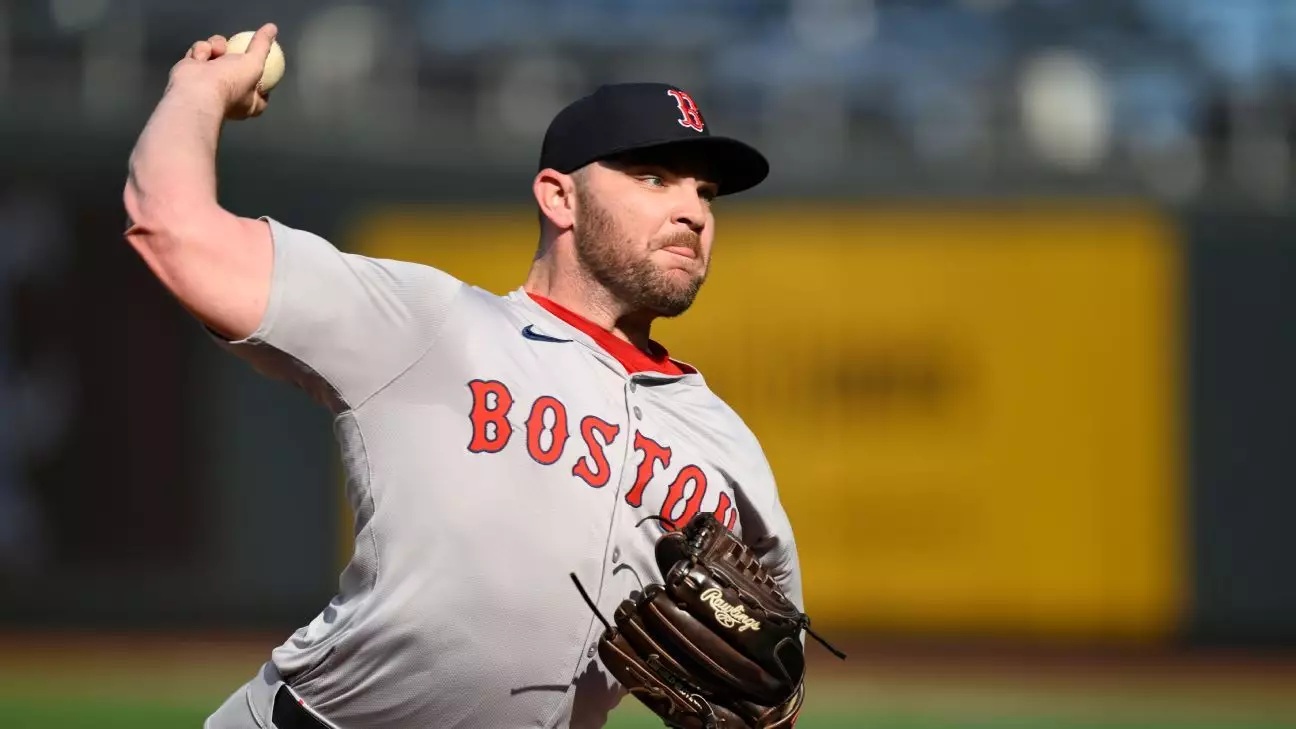In an unexpected twist reflecting the vulnerability of professional athletes, Boston Red Sox reliever Liam Hendriks recently shared his experiences with online harassment and threats. This incident serves as a stark reminder of how, in the digital age, the destructive potential of social media frequently overshadows the competitive sphere of sports. Hendriks, who bravely discussed receiving death threats against him and his family, shines a light on the toxic underbelly of public engagement surrounding sports figures today. His revelation was not just an isolated expression of sadness but a clarion call for accountability in an environment that has become permissive of hate.
Hendriks eloquently voiced a sentiment that many athletes may secretly harbor but often dare not articulate: “enough is enough.” This phrase resonates deeply as it eloquently captures the collective exhaustion borne from relentless online vitriol. With players subjected to harrowing messages, it opens up larger questions around mental health and safety within the public arena, raising awareness of the uncharted territory athletes must navigate in their careers.
The Role of Leadership in Athlete Welfare
Boston’s manager, Alex Cora, stepped forward to stand with Hendriks, encapsulating an encouraging notion: the importance of leadership in sports extends far beyond strategy and statistics. Cora’s instinctive empathy for his player underlines the necessity for coaches and team leaders to foster an environment that prioritizes both emotional and physical safety for athletes. In his remarks, Cora stressed that although athletes exist in the public eye, there is no justification for the cruelty they face. His approach underscores a critical paradigm shift; athletes are not merely entertainers, but human beings deserving of respect.
As Cora noted, social media provides an avenue for “real people” to express opinions, but it also hatches a multitude of anonymous figures whose disdain can manifest violently. This duality emphasizes the need for a conversation around responsibility and the implications tied to online anonymity. As fans it’s vital we cultivate a culture of support rather than disdain, recognizing that behind a uniform is a person with emotions, struggles, and victories that sometimes go unnoticed.
An Intersection of Sports, Mental Health, and Accountability
The emergence of gambling within sports has only heightened the stakes, fueling a dynamic that can lead to hostile interactions between fans and players. Cora himself acknowledged this tangled web of frustration, where a poorly executed pitch or a poor game decision provokes rage and leads fans to lash out against players in cruel and harmful ways. This reality suggests a broader social commentary on how we perceive and react to failures in high-stakes environments.
Athletes, such as Hendriks, who come back from personal battles—like his fight against non-Hodgkin’s lymphoma—should be seen as inspiring figures. Yet, they often become victims of mindless hate, revealing a chilling disconnection in how society views sports as purely a realm of performance devoid of empathy.
Compassion in the Age of Instant Feedback
As our society becomes increasingly digital, we must cultivate a framework that encourages understanding and compassion, especially as sports fans. Conversations need to pivot from rage and aggression toward fostering a supportive community that acknowledges both the highs and lows inherent in sports dynamics. In light of Hendriks’ experience, we should ask ourselves: how can we leverage our voices to uplift rather than undermine, to empathize rather than scorn?
It is a challenging conversation, but Cora’s acknowledgment of the “dangerous path” reveals the poignant truth that our engagement with athlete narratives requires a foundational commitment to compassion. Instead of posting hurtful retaliation following a game’s outcome, imagine the transformative power of thoughtful support that recognizes the multifaceted situations athletes face off the field.
In this age of instant feedback where every misstep can evoke a torrent of criticism, let’s collectively strive to reshape the narrative around sportsmanship and mental health. By prioritizing kindness alongside competitive spirit, we can redefine the dynamics of the sports community, turning moments of abhorrence into occasions for healing and unity.

